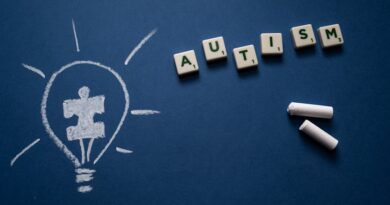Understanding Common Triggers for Relapse: What You Need to Know
What are common triggers for relapse?

Relapse, the return to substance use after a period of abstinence, can be triggered by a variety of factors. Understanding these triggers is crucial in maintaining your recovery journey.
Peer Pressure: The Power of Influence

One common trigger for relapse is peer pressure. Imagine you’ve been sober for a few months and your friends invite you to a party where alcohol will be flowing freely. The pressure to fit in and not feel left out can be overwhelming, leading you to give in to temptation.
Emotional Turmoil: Dealing with Stress and Anxiety

Emotional stress and turmoil can also be significant triggers for relapse. If you’re going through a tough time at work, dealing with a relationship issue, or feeling overwhelmed by life in general, turning to substances may seem like an easy way to escape from the pain.
Social Isolation: Feeling Alone in a Crowd

Feeling lonely and isolated can be a trigger for relapse as well. If you’re struggling to connect with others, whether due to moving to a new place, losing touch with old friends, or feeling like you don’t belong, the temptation to use substances to numb the loneliness can be strong.
Overconfidence: The Danger of Feeling Invincible
Another common trigger for relapse is overconfidence. You may start to feel like you have your addiction under control and that you can use substances in moderation. However, this false sense of security can quickly lead to a full-blown relapse.
Physical Pain: Seeking Relief from Discomfort
Physical pain can also be a trigger for relapse. If you’re dealing with chronic pain or recovering from a surgery or injury, the temptation to use substances for pain relief can be strong. However, this can quickly spiral out of control and lead to a relapse.
Environmental Triggers: The Power of Associations
Environmental triggers, such as places, smells, or people associated with your past substance use, can also lead to relapse. For example, if you used to frequent a certain bar or hang out with a group of friends who used substances, being in those environments or around those people can trigger cravings and lead to relapse.
Financial Stress: The Struggle to Make Ends Meet
Financial stress can be a significant trigger for relapse as well. If you’re struggling to make ends meet, facing mounting bills, or dealing with financial insecurity, the temptation to use substances to cope with the stress and anxiety can be overwhelming.
Unresolved Trauma: Dealing with Past Wounds
Unresolved trauma from the past can also be a trigger for relapse. If you’ve experienced trauma such as abuse, neglect, or a significant loss, the emotional pain and memories associated with these experiences can lead you to turn to substances as a way to cope.
Tips for Avoiding Relapse
Now that you understand some common triggers for relapse, it’s important to have a plan in place to avoid falling back into old patterns. Here are some practical tips to help you stay on track:
- Build a strong support system of friends, family, and peers who are supportive of your recovery journey.
- Develop healthy coping mechanisms for dealing with stress, such as exercise, meditation, or talking to a therapist.
- Avoid high-risk situations and environments that may trigger cravings, such as bars, parties, or places where substances are easily accessible.
- Stay connected with your treatment program or support group to stay accountable and motivated on your recovery journey.
By being aware of common triggers for relapse and taking proactive steps to manage them, you can increase your chances of maintaining your sobriety and living a healthier, happier life.
In Conclusion
Remember, recovery is a journey, and setbacks are a normal part of the process. By understanding common triggers for relapse and having a plan in place to manage them, you can navigate challenges more effectively and continue on your path to healing and growth.




